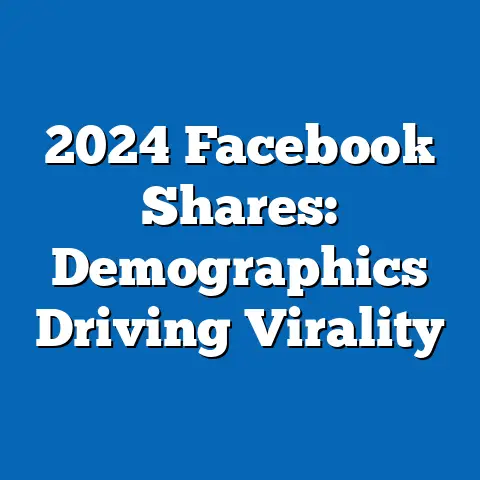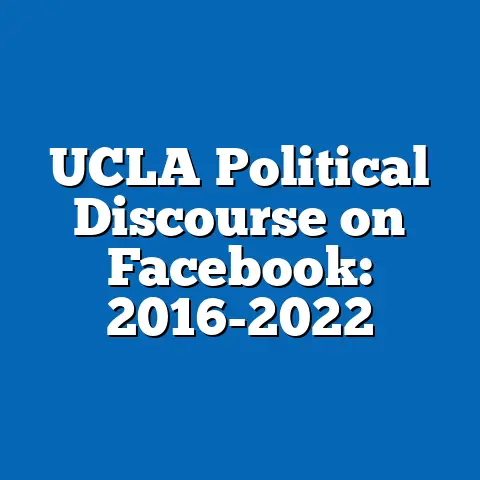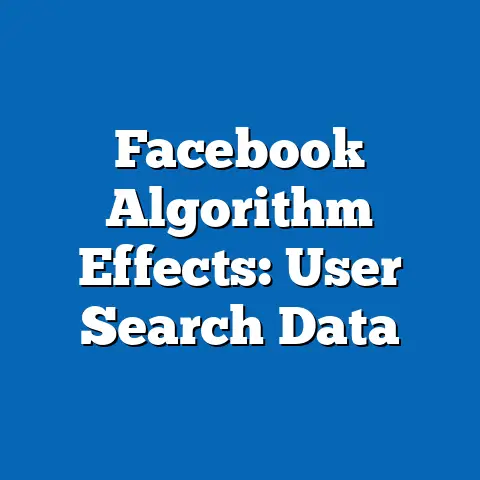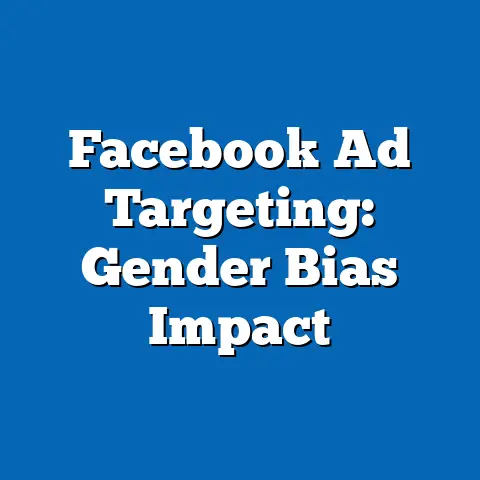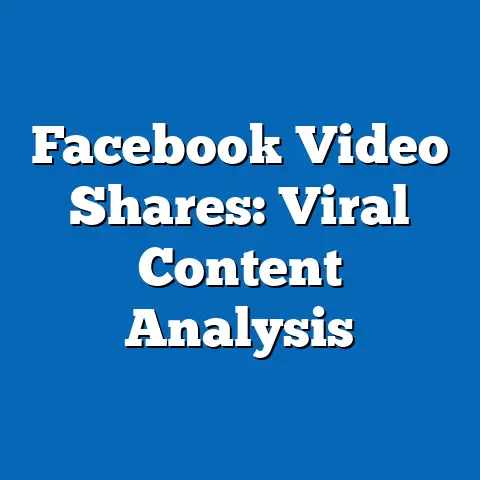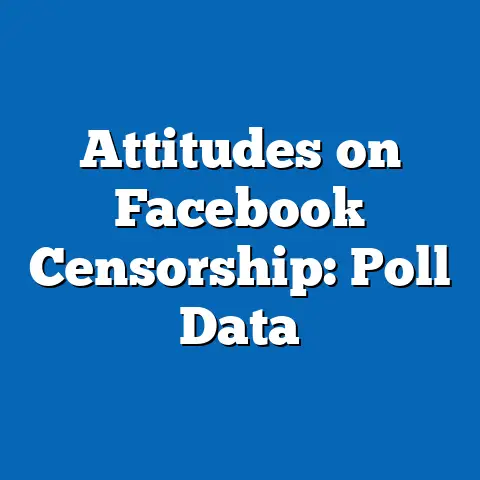Facebook’s Influence on Voting Patterns
In the ever-evolving world of social media, few platforms have shaped public discourse as profoundly as Facebook. As a trendsetter in digital communication, Facebook has not only redefined how individuals connect but also how political ideas are disseminated and debated, influencing voting patterns in significant ways. Launched in 2004 by Mark Zuckerberg, Facebook emerged as a pioneering force in social networking, setting the stage for a new era of online interaction that would eventually impact democratic processes worldwide.
Facebook’s defining characteristics as a trendsetter include its unparalleled user base—over 2.9 billion monthly active users as of 2023, according to Statista—and its ability to facilitate rapid information sharing through user-generated content, targeted advertising, and algorithmic curation. Its historical context is rooted in the early 2000s, a time when the internet was transitioning from a niche tool to a mainstream medium, coinciding with rising concerns about privacy, misinformation, and digital influence. The platform’s societal implications are vast, ranging from fostering global connectivity to amplifying political polarization, as evidenced by its role in events like the 2016 U.S. presidential election and the Brexit referendum.
As we approach the 2024 election cycle, understanding Facebook’s influence on voting patterns becomes critical. This article explores how the platform shapes voter behavior across generations, delving into historical trends, technological mechanisms, and the societal, cultural, and political ramifications of its role in modern democracy. Through a data-driven and nuanced lens, we aim to uncover the complexities of this digital trendsetter’s impact while considering the diversity of user experiences and the evolving regulatory landscape.
Section 1: Historical Context of Facebook’s Political Influence
Facebook’s journey from a college networking site to a political powerhouse is a story of technological innovation intersecting with societal change. Initially designed for personal connections, the platform began to play a significant role in politics during the 2008 U.S. presidential election, when Barack Obama’s campaign leveraged it to mobilize young voters, raising over $500 million through online grassroots efforts, as reported by the Pew Research Center. This marked a turning point, showcasing social media’s potential to influence electoral outcomes.
The 2016 U.S. election further solidified Facebook’s political significance, albeit controversially. The Cambridge Analytica scandal revealed how data harvested from millions of Facebook users was used to micro-target voters with tailored political ads, raising ethical questions about privacy and manipulation. Studies, such as those by the University of Oxford in 2018, estimated that such targeted campaigns could sway undecided voters by up to 5%, a margin significant enough to alter close races.
Since then, Facebook has been at the center of debates about misinformation, with the platform struggling to balance free speech and content moderation. The spread of “fake news” during the 2020 U.S. election, including false claims about voter fraud, underscored its dual role as both a democratic tool and a potential threat. As we head into 2024, this historical backdrop provides crucial context for understanding how past events shape current voter behavior and trust in digital platforms.
Section 2: Mechanisms of Influence on Voting Patterns
Facebook influences voting patterns through several interconnected mechanisms, each amplified by its technological infrastructure and user engagement strategies. First, algorithmic curation plays a pivotal role. The platform’s news feed algorithm prioritizes content based on user preferences, often creating “echo chambers” where individuals are exposed primarily to ideas aligning with their existing beliefs, as highlighted in a 2021 study by the MIT Sloan School of Management.
Second, targeted political advertising allows campaigns to reach specific demographics with precision. According to Facebook’s Ad Library data, political ad spending in the U.S. alone reached $1.1 billion during the 2020 election cycle, with ads tailored to users’ age, location, and interests. This hyper-personalization can influence voter turnout and sway opinions, particularly among undecided or low-information voters, as noted in a 2022 report by the Center for American Progress.
Third, the viral spread of misinformation remains a significant concern. A 2023 study by the University of Southern California found that false political content on Facebook is shared six times more frequently than factual content, exploiting emotional triggers to drive engagement. These mechanisms collectively shape voter perceptions, often reinforcing biases or introducing divisive narratives that impact electoral choices.
Section 3: Generational Dynamics in Facebook’s Political Sphere
Generational differences play a crucial role in how Facebook influences voting patterns, reflecting varied technological adoption, values, and historical experiences. Below, we analyze key generations active in the 2024 election cycle, drawing on demographic data and behavioral trends.
Baby Boomers (Born 1946–1964)
Baby Boomers, often shaped by post-World War II optimism and the civil rights movement, are increasingly active on Facebook, with 70% of U.S. adults in this age group using the platform, per Pew Research Center’s 2023 data. Their trust in traditional institutions can make them susceptible to misinformation, as they may share unverified content from familiar networks. Political campaigns targeting Boomers often focus on issues like Social Security and healthcare, using nostalgic messaging that resonates with their lived experiences.
However, not all Boomers are digitally naive; many have adapted to fact-checking and cross-referencing information. Their voting influence remains significant due to high turnout rates—historically above 60% in presidential elections—making them a critical demographic for 2024 campaigns on Facebook.
Generation X (Born 1965–1980)
Generation X, shaped by economic uncertainty and the rise of personal computing, serves as a bridge between analog and digital eras. About 65% of Gen Xers use Facebook, often for professional networking and family updates, according to 2023 Nielsen data. Their skepticism of authority, rooted in events like the Watergate scandal, makes them less likely to accept political ads at face value, though targeted content on issues like job security can still sway opinions.
Gen X’s moderate engagement with political content suggests they are less polarized than other cohorts, often seeking balanced perspectives. Their voting patterns in 2024 may reflect a pragmatic approach, influenced by Facebook content that aligns with practical concerns rather than ideological extremes.
Millennials (Born 1981–1996)
Millennials, who came of age during the internet boom and the 2008 financial crisis, are digital natives with a strong presence on Facebook—over 75% use the platform, per Statista 2023. Their values, often centered on social justice and climate change, make them receptive to progressive campaigns, though they are also critical of corporate and political messaging. Studies, such as a 2022 Gallup poll, show Millennials are more likely to fact-check political content on Facebook, reducing the impact of misinformation compared to older generations.
For 2024, Millennials’ voting behavior may be driven by issue-based content, with Facebook serving as a mobilization tool for causes like student debt relief or racial equity. Their high engagement with peer-shared content also amplifies grassroots movements, potentially shifting electoral outcomes in key states.
Generation Z (Born 1997–2012)
Generation Z, the first fully digital generation, has grown up with social media as a primary communication tool, though their Facebook usage is lower (around 50%) compared to platforms like TikTok and Instagram, according to 2023 eMarketer data. Shaped by events like the COVID-19 pandemic and Black Lives Matter protests, Gen Z prioritizes authenticity and activism, often using social media to organize and advocate for systemic change. On Facebook, they are more likely to engage with viral political memes or short-form content than traditional ads.
Despite lower turnout historically, Gen Z’s growing eligibility to vote in 2024—millions will reach voting age—makes them a wildcard. Facebook’s influence on this cohort may be limited but impactful through community-driven campaigns addressing gun control or mental health.
Section 4: Societal and Cultural Implications
Facebook’s role in shaping voting patterns extends beyond individual behavior to broader societal and cultural dynamics. One major implication is the deepening of political polarization. A 2023 study by the American Psychological Association found that frequent exposure to partisan content on Facebook correlates with increased hostility toward opposing political groups, undermining social cohesion.
Additionally, the platform’s influence on trust in democratic institutions cannot be overlooked. The spread of conspiracy theories and false narratives, such as those surrounding the 2020 election, has eroded confidence in electoral processes among significant portions of the population, with a 2022 Pew survey indicating that 29% of Americans believe social media makes them less confident in election integrity. This trend poses risks for 2024, potentially fueling voter apathy or unrest.
Culturally, Facebook has also shifted how political discourse is conducted, moving it from formal debates to informal, emotionally charged exchanges. This democratization of voice allows marginalized groups to amplify their concerns but also risks drowning out nuanced dialogue in favor of sensationalism, as noted by media scholars like Dr. Natalie Stroud in her 2021 book on digital polarization.
Section 5: Economic and Technological Factors
Economically, Facebook’s influence on voting is tied to its business model, which prioritizes ad revenue over content neutrality. Political campaigns and interest groups spend billions on targeted ads, creating a feedback loop where controversial or divisive content often garners more clicks, thus amplifying polarizing messages. A 2023 report by the Open Markets Institute highlighted how this profit-driven structure incentivizes engagement over accuracy, posing challenges for regulating political content.
Technologically, advancements in AI and data analytics have enhanced Facebook’s ability to influence voters. Machine learning algorithms predict user behavior with startling accuracy, enabling campaigns to deliver ads at optimal times or to specific emotional states, as discussed in a 2022 paper by the Journal of Digital Media & Policy. While these tools can increase voter turnout, they also raise ethical concerns about manipulation and consent, especially as privacy regulations lag behind technological capabilities.
Section 6: Workplace and Community Impacts
Facebook’s influence on voting patterns also reverberates in workplaces and local communities, where political discussions often spill over from online spaces. In workplaces, polarized content can strain colleague relationships, with a 2022 SHRM survey finding that 40% of U.S. employees reported political disagreements stemming from social media impacting their productivity. Employers are increasingly navigating these tensions, sometimes implementing social media policies to mitigate conflict.
In communities, Facebook groups serve as digital town halls, fostering local political engagement but also amplifying divisions. A 2023 case study by the University of Chicago found that hyper-local Facebook groups in swing states often become battlegrounds for competing narratives, influencing how residents perceive candidates and issues. For 2024, these dynamics could shape grassroots organizing and voter mobilization at the community level.
Section 7: Regulatory and Ethical Challenges for 2024
As the 2024 election approaches, regulating Facebook’s influence on voting remains a contentious issue. Governments worldwide are grappling with how to address misinformation without infringing on free speech. In the U.S., proposed legislation like the Honest Ads Act aims to increase transparency in political advertising, while the EU’s Digital Services Act imposes stricter content moderation rules on platforms like Facebook, with fines up to 6% of global revenue for non-compliance, per 2023 EU reports.
Ethically, questions persist about Facebook’s responsibility to users versus shareholders. Critics argue that self-regulation has failed, citing the platform’s slow response to hate speech and electoral interference, as documented in a 2022 whistleblower report by Frances Haugen. Balancing profit motives with democratic integrity will be a defining challenge for 2024, influencing public trust in both the platform and the electoral process.
Section 8: Forward-Looking Insights and Uncertainties
Looking ahead to 2024, Facebook’s influence on voting patterns will likely intensify as campaigns refine digital strategies and new technologies emerge. The integration of AI-generated content, such as deepfakes, poses a looming threat, with experts like Dr. Hany Farid of UC Berkeley warning that such content could undermine electoral credibility if not addressed. Conversely, Facebook’s potential to mobilize underrepresented voters through targeted outreach offers opportunities for greater democratic inclusion.
Uncertainties remain, including the impact of regulatory changes, user migration to other platforms, and evolving public attitudes toward social media. While younger generations may shift away from Facebook, its dominance among older, high-turnout demographics ensures its relevance in 2024. The platform’s ability to adapt to scrutiny—through improved content moderation or transparency measures—will also shape its role in future elections.
Conclusion
Facebook, as a trendsetter in digital communication, has profoundly influenced voting patterns through algorithmic curation, targeted advertising, and the viral spread of information. Its impact varies across generations, reflecting diverse technological habits and historical contexts, while raising critical societal issues like polarization and trust in democracy. As we approach the 2024 election, the platform’s role remains both a powerful tool for engagement and a source of ethical and regulatory challenges.
Understanding these dynamics requires a nuanced approach that acknowledges the diversity within generations and the complexity of digital influence. While Facebook’s future impact is uncertain, its historical trajectory suggests it will continue to shape political landscapes, necessitating vigilance, regulation, and public awareness to safeguard democratic integrity. By fostering informed dialogue and critical media literacy, society can harness the platform’s potential while mitigating its risks, ensuring that the trendsetter’s choice serves the greater good in 2024 and beyond.

